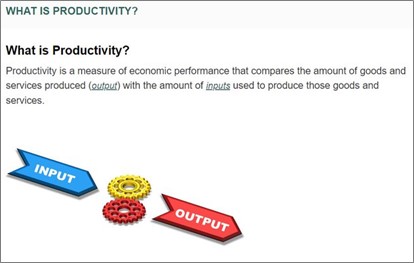The Evolving Role of Productivity in IT Management
At the heart of any management concept, productivity often takes center stage. For nearly two centuries, management practices have focused on enhancing productivity at every organizational level, starting with individual workers. In IT management, we’ve followed this logic, using metrics like the number of tickets processed per agent and time-to-market as benchmarks to produce more, faster.
However, in the last two or three decades, some thinkers have recognized that this mechanistic approach doesn’t apply universally. Not all professions can be measured by quantity and consistent output alone. In fields like IT, attributes such as creativity, innovation, and knowledge creation and sharing are often more important than outputs per unit of time.

“Unfortunately, measurement of productivity does not improve productivity.” – W. Edwards Deming, Out of the Crisis
This issue is particularly pronounced in the IT domain. The primary purpose of an IT department is to automate anything that can be reduced to an algorithm. Ironically, increasing productivity in this context often means that a worker is performing tasks that should be automated by software or IT systems. It’s difficult to find any meaningful productivity metric in IT that genuinely needs to be increased—I can’t think of one.
This suggests that we’re trying to solve the wrong problem. Instead of focusing on measuring productivity, we might use it to identify tasks that are better suited for automation or outsourcing.
In conclusion, the concept of productivity is deeply intertwined with industrial management methods, making it inappropriate for knowledge workers in IT. The real challenge isn’t about solving a productivity problem we’ve inadvertently created by adopting the wrong model.
Instead of relying on productivity metrics, we should explore alternative measures that better reflect the nature of IT work, such as knowledge worker quality indexes, collaboration quality, and innovativeness.
